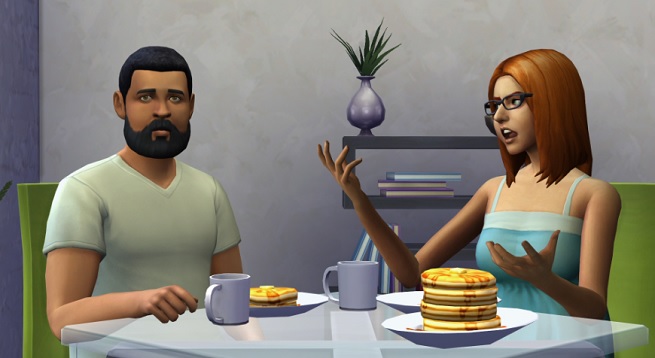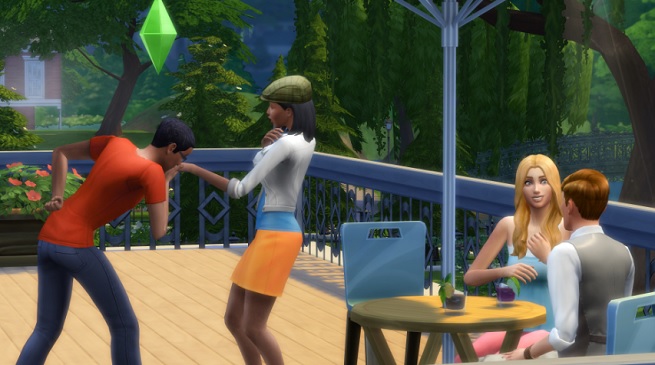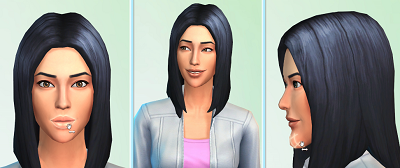GamesBeat: Did it feel, at the time, like The Sims or Maxis was almost a foreign object in the middle of the video game business?
Pearson: I think Maxis continues to feel a little different. [Laughs] I’ve talked to people on other teams. I’ve worked with other teams across the studio. Everyone has their own special magic that makes them what they are. For Maxis, it’s that diversity for us. It’s the variation of what makes up our teams.
We always feel a little bit like outsiders, but I think any team would say that, to an extent. You build your own culture. You build your own set of what motivates you. That’s what makes your games different, regardless of if you’re making a shooter or a Sims game. The Sims games continue to have that special flavor because of that diversity, just as Battlefield has a specific flavor because of the way its teams are.
GamesBeat: Then it became a sort of magnet, as it got really successful.
Pearson: I think so. For players, there’s something about The Sims that continues to draw them to it, over and over. It resonates with everyone in a different way. It’s something you can identify with. It’s not the same as — my husband plays lots of games. He likes different experiences. I’m exploring a thing, I’m blowing up a thing, whatever it is — we like to play those types of games. But they resonate with you on a different level of enjoyment. The Sims resonates with you in a way like, “I may have done this in my life” or “I could do this in my life.” There’s a different chord that it strikes. So it does have a pull toward a different type of audience.
A common misconception about The Sims is that it’s more of a girls’ game. It’s not. We have a really diverse audience that’s quite balanced between men and women. I think it’s because it resonates with those real stories and real lives. I love it when I can go home and talk to my parents — who don’t play games at all — and say, “Hey, let me tell you what I did in The Sims today.” I’ll tell them some funny story about how my Sim went on a date, and then she ended up breaking up with the guy, and somebody yelled at her. They understand what all that is, and so there’s a connection immediately. It’s a franchise and a game that speaks beyond normal gaming boundaries. Everybody gets a story about that.
GamesBeat: It seems like a magnet inside the studio as well, drawing women to come work on it.
Pearson: It definitely appeals to women developers, because it’s a different style of game. It has a lot more player influence. You’re directing your Sims to do all sorts of different things, a huge breadth of possibilities. It absolutely has drawn in women for that reason.
It’s drawn in a lot of other developers for that reason. A lot of people in our studio, a lot of men who come in out of college, played SimCity as kids and they love what Maxis is about. Or they grew up playing The Sims and they love what we’re about. It’s drawn both aspects, but there’s definitely an appeal to the types of stories we tell with The Sims that draws the women of the world. We encourage that.
GamesBeat: Given where you are in the industry, how do you look at the gender issues around us? You have a view that’s a little more elevated, since you’ve been in gaming for so long. You’ve watched this become, at different points, a hot-button in the industry. It seems to me that game industry feels like it’s behind a lot of other industries as far as bridging the gender gap. Movies and TV addressed these things earlier in their history than the game industry has.
Pearson: It’s an interesting cause-and-effect problem. Which one changes first? I do think that, in the Sims studio, we feel like we’re trying to push that boundary as much as possible. We’re constantly making games that appeal to more than just women. We’re not just a girls’ game. We try to make sure it’s something that both men and women can enjoy.
By using that as a tool to speak to the player, we’re trying to invite them to understand that games are for more than just boys as well. There’s that stereotype of guys sitting in a basement playing games, but it’s so much more than that. The gaming audience includes way more women than ever before. The Sims has been at the forefront of that, and we continue to try to encourage that as much as possible.
The way we try to continue to push our games out makes a difference there, trying to show other people that this game is for anyone. You can get what you want out of it. There’s an opportunity to enjoy it in a different way. I think you’re starting to see more of that in other games as well. But it’s a combination. You have to push against the bias that games are just for guys, as well as the bias that game development is just for guys. They go hand in hand.
We want to push against both of those things. We have a lot of influential women leaders on The Sims. We try to take part in GDC talks and the events that happen around those types of conferences. EA brings a lot of people to do chats here. We try to get out to the game development community and talk about this at a broader level.
GamesBeat: You can feel happy about how much progress has been made, I suppose, but you can also feel frustrated about how far there is to go.
Pearson: It’s true. I like to feel happy, personally. I like to see the progress that’s been made. As I mentioned earlier, I relish the opportunities to talk to the next generation of women that are coming up through school and encouraging them to go this route.
It’s a very hot topic now, encouraging women to do math and science and be more involved in engineering and science and computer science. Gaming is a great way to get that through to them, because so many more women are playing games now on different platforms and in different areas, whether it’s The Sims or so many other things. They’re getting more familiar with games as an entertainment medium. There will be a higher level of motivation to be involved in that in some fashion. It’s cracking open that door a bit each time, by exposing it to more people and more women in particular and saying, “Hey, there’s this whole industry here.”
When I first joined, I had played games as a kid, but I never thought of them as something anyone made. I just assumed that they magically arrived. When I went off to school, I went to art school, and I was planning to go into movies, because I figured that was what you did with art-school stuff. I had a bunch of friends in game development and game design majors, though, and I was like, “Oh, right, games — that’s cool.”
I went to my first GDC, and I realized that games were doing everything movies were doing, but you could play them. That was awesome. It was a little lightbulb for me. I think we’re trying to connect those dots a bit more, so that people can understand that games are made by all sorts of interesting people, and you enjoy them. There’s something there that people can be a part of, that women can be a part of just as much as anyone else.
GamesBeat: What are some things that you think have helped push this progress forward, whether big or little? Things that happen on a daily basis, or things that happen on a larger scale?
Pearson: From a development standpoint, I love the fact that in our studio, and in the way the studio’s represented to the rest of EA, our top leadership ranks are all women. Our VP of the studio is a woman. My executive producer is a woman, and other leads on my team. Within EA, that sends a message about how important that can be.
Within games, other games are making a lot of progress as well, with stronger female protagonists and characters. The Sims has always pushed a completely genderless world, so to speak. Any female Sim can do anything a male Sim can do. I love that about The Sims. You can pick any character you want and push them to tell these amazing stories. The only difference is how they use a bathroom, I think? [Laughs] That’s it.
We’ve even gone so far, in The Sims, to let male Sims get pregnant. We really try to even up that playing field. Which is great, because it sends that message about gender equality. I feel like other games are trying to push that as well, which is encouraging. We hit it on both fronts, which makes me excited to be part of this studio and part of The Sims.



